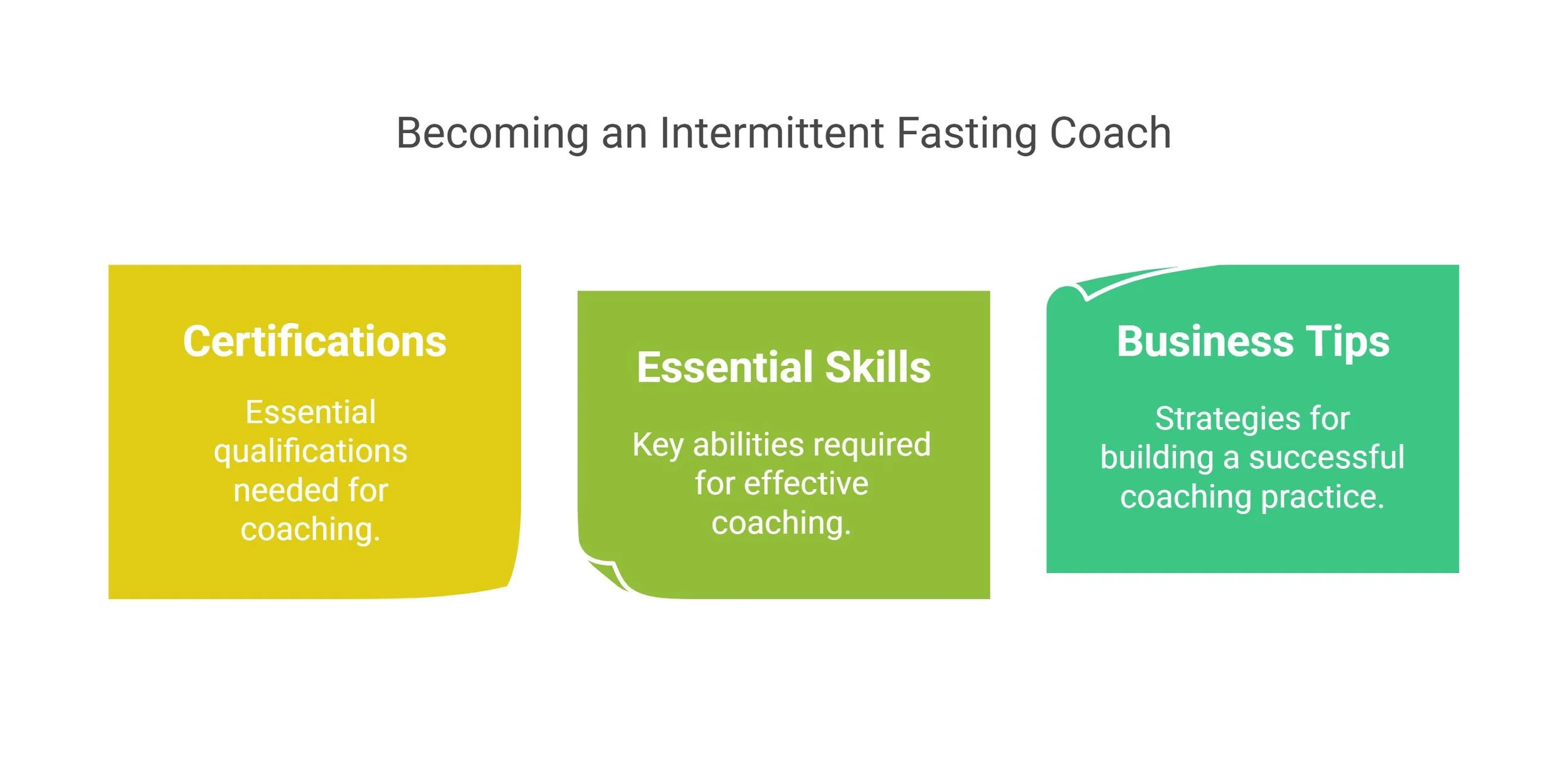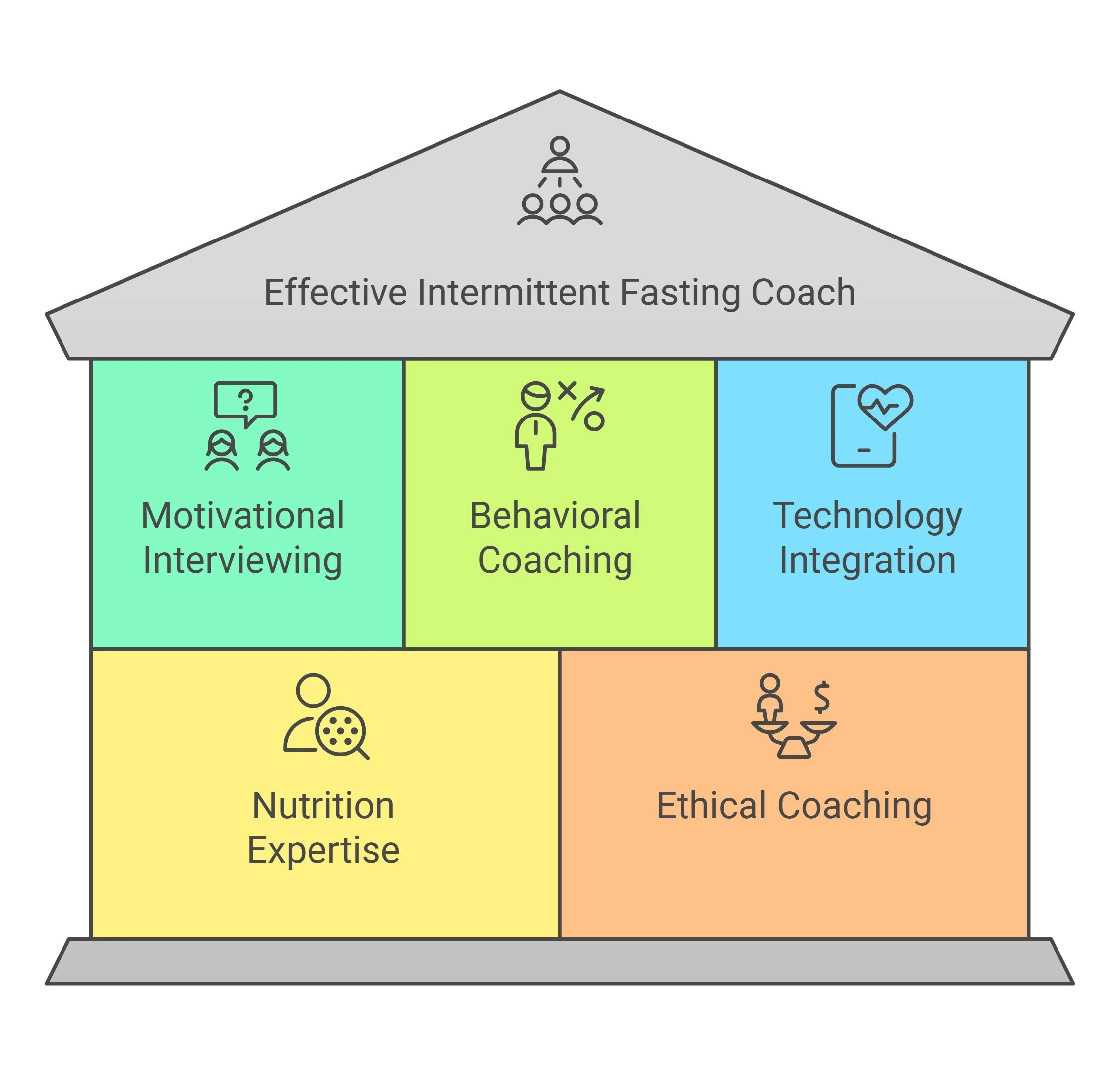Becoming an Intermittent Fasting Coach What You Need to Know
Intermittent fasting (IF) has firmly rooted itself as one of the most popular dietary practices around the world. As more people seek effective ways to manage their health, lose weight, and achieve optimal metabolic function, the demand for experienced intermittent fasting coaches has skyrocketed. The role of a coach who can guide people through the science of fasting, its benefits, and its challenges is more critical than ever in 2025.
If you're passionate about health, wellness, and helping others make meaningful changes, becoming an intermittent fasting coach might just be the perfect career path for you. In this guide, we’ll explore everything you need to know about becoming an intermittent fasting coach in 2025 — from certifications and essential skills to tips for building a thriving coaching business.
Why is Intermittent Fasting So Popular in 2025?
Intermittent fasting has become a cornerstone of modern wellness, praised for its proven health benefits such as weight loss, enhanced brain function, improved metabolic health, and blood sugar control. In 2025, the appeal of intermittent fasting has only grown as scientific research continues to validate its effectiveness. But as demand for personalized guidance increases, the need for certified and knowledgeable intermittent fasting coaches becomes clear.
What Does an Intermittent Fasting Coach Do?
An intermittent fasting coach is a guide, mentor, and expert who helps clients navigate their fasting journey. Unlike traditional nutritionists or dietitians who focus on what to eat, an intermittent fasting coach focuses on when to eat and the structure of eating patterns.
Key responsibilities of an intermittent fasting coach include:
Customizing Fasting Plans: A coach works with clients to create personalized fasting schedules based on their goals, lifestyle, and health conditions. This could range from weight loss goals to metabolic flexibility, or even hormone regulation.
Providing Accountability: It’s easy to quit when results are slow or when the fasting process gets challenging. A coach offers motivation, support, and advice, helping clients stay on track and optimize their fasting protocols.
Educating Clients on Fasting Science: Coaches educate clients on the biology of fasting, including how fasting impacts hormones like insulin, leptin, and ghrelin. In 2025, the science of fasting continues to evolve, and a coach must stay updated with the latest research.
Utilizing Technology: The use of AI-powered health trackers and wearable devices is integral to a fasting coach's toolkit in 2025. These technologies allow coaches to track progress and make data-driven decisions for their clients.
Helping Clients Navigate Plateaus: One common challenge with fasting is hitting a plateau. A skilled coach will help clients break through these stagnations and continue their progress.
Intermittent Fasting Coaching Certifications in 2025
If you're thinking about becoming an intermittent fasting coach, one of the first things you’ll need is the right certification. While there isn't a specific "intermittent fasting coach" certification, there are several pathways you can take to gain credibility.
Some of the most recognized certifications in 2025 include:
National Board Certified Health and Wellness Coach (NBC-HWC): This certification is recognized as one of the gold standards for health coaches and emphasizes holistic approaches to health.
Precision Nutrition Certification: Precision Nutrition is a comprehensive certification program that covers metabolic health, intermittent fasting, and personalized nutrition strategies, making it a top choice for those specializing in fasting.
Health Coach Institute (HCI) Certification: This program integrates nutrition, behavioral coaching, and fasting science, giving you the tools needed to become an effective fasting coach.
The Fasting Coach Academy: For a more specialized approach, the Fasting Coach Academy offers deep insights into fasting strategies, metabolic adaptation, and meal timing. This program focuses specifically on the science of fasting and how to coach clients effectively.
Becoming a Certified Coach: Step-by-Step Guide
Learn the Fundamentals of Fasting: Before anything else, it’s vital that you understand the principles of intermittent fasting. Study how fasting impacts the body, metabolism, and hormones. Learn about various fasting methods, such as the 16:8 method, the 5:2 diet, and alternate-day fasting (ADF).
Obtain a Certification: A certification from a recognized organization will give you the credibility needed to gain trust and attract clients. Choose a program that aligns with your interests and offers a comprehensive understanding of nutrition and fasting.
Develop Coaching Skills: Beyond certifications, being a great coach requires skills in motivational interviewing, behavioral change, and goal-setting. You must be able to listen to your clients, understand their needs, and tailor your approach accordingly.
Stay Current with Fasting Trends: As science evolves, new fasting strategies emerge. Staying updated with the latest research and trends is crucial. Follow relevant journals, attend seminars, and be part of fasting-related communities to keep up.
Essential Skills for Becoming an Effective Intermittent Fasting Coach
Becoming an intermittent fasting coach requires a blend of knowledge, experience, and key coaching skills. These skills not only make you effective in your role but also enhance the client experience.
Motivational Interviewing: Motivational interviewing helps clients navigate challenges and stick to their fasting protocols. By asking open-ended questions and exploring reasons for resistance, you can foster commitment to the process.
Behavioral Coaching: A coach should focus on creating long-lasting lifestyle changes, not quick fixes. Teach clients about building sustainable habits and making informed decisions that contribute to long-term health.
Technology Integration: Coaches in 2025 must utilize tech tools, such as AI-powered fasting apps (Zero, FastCoach) and wearable health trackers (Fitbit, Apple Watch), to provide real-time data to clients and optimize their fasting experience.
Nutrition and Metabolism Expertise: A deep understanding of nutrition and metabolism is essential to craft individualized fasting plans. Coaches should know how fasting impacts insulin levels, glucose metabolism, and overall health.
Ethical and Evidence-Based Coaching: It’s essential that fasting coaches provide evidence-based guidance. There’s a lot of misinformation about fasting, and it’s crucial to correct myths and present scientifically-backed information.
How to Build a Successful Intermittent Fasting Coaching Business
The business side of intermittent fasting coaching requires a strategic approach. Below are some steps you can take to build a thriving business:
1. Define Your Niche
Fasting coaching is broad, and finding your niche is essential. In 2025, some of the most lucrative niches include:
Athletic Fasting Coaching: Specializing in helping athletes optimize fasting for performance and recovery.
Hormonal Health Coaching: Helping individuals with conditions like PCOS or menopause use fasting for hormonal balance.
Weight Loss & Metabolic Flexibility Coaching: Assisting clients in achieving sustainable fat loss and improving metabolic health.
2. Use Technology to Scale Your Coaching
Leverage online tools to reach more clients and scale your business. Some options include:
AI-Powered Fasting Apps: Apps like Zero and FastCoach offer clients tailored fasting plans and track progress.
Virtual Coaching: Use platforms like Zoom or Teachable to provide virtual coaching sessions and courses.
Content Marketing & Social Media: Utilize blogs, podcasts, and YouTube to share valuable fasting insights, attract new clients, and build your online presence.
3. Stay Updated with Research
Intermittent fasting is still evolving, so staying updated on the latest trends and research is key. Participate in online webinars, attend fasting-related conferences, and read health journals to keep your knowledge current.
4. Build a Client Base Through Testimonials and Referrals
Word of mouth is a powerful tool in the coaching industry. Ask satisfied clients to share their testimonials and refer others to your services.
In conclusion, becoming an intermittent fasting coach is not only a rewarding career but also an opportunity to make a lasting impact on people’s health and well-being. As the industry continues to grow and evolve in 2025, staying updated with the latest trends and science is crucial. If you’re ready to take the next step and become a certified health coach, consider pursuing a certification through programs like ANHCO, which offers Advanced Health and Life Coaching Program.
By following these steps, you can build a career that offers financial rewards, personal fulfillment, and the opportunity to help others transform their health through evidence-based fasting strategies.
Is Becoming an Intermittent Fasting Coach Right for You?
As intermittent fasting coaching continues to grow in popularity, now is the perfect time to establish yourself in this field. By obtaining a fasting coach certification, staying updated with scientific research, and leveraging technology-driven coaching tools, you can build a thriving coaching business in 2025.
For those looking to specialize further, the Ancho Advanced Health and Life Coaching Program offers the opportunity to gain in-depth expertise in fasting, metabolic health, and biometric analysis.
If you are passionate about health, wellness, and sustainable fasting strategies, this career path offers both financial and personal fulfillment while making a meaningful impact on people's lives.
Now is the time to take the next step toward becoming a certified intermittent fasting coach and help others achieve lasting health transformations through science-backed fasting strategies.
-
Becoming certified can take anywhere from a few months to a year, depending on the program you choose. Programs like Precision Nutrition and NBC-HWC certification can be completed relatively quickly if you dedicate the time.
-
Yes! Many intermittent fasting coaches successfully operate online, providing coaching sessions via Zoom or other digital platforms, which allows you to work with clients globally.
-
While it can vary widely, many coaches can earn between $50,000 to $150,000 annually, especially with a strong client base and diversified services.
-
No, you don’t need a medical background, but having certifications in health coaching or nutrition is highly beneficial. Some knowledge of medical conditions can also enhance your ability to work with clients.
-
Some of the most popular fasting methods today are the 16:8 method, the 5:2 diet, and circadian rhythm fasting. These methods cater to different goals and preferences.
-
Building an online presence via social media, running ads, creating blogs, and networking within fasting communities can help you find clients. Referrals also play a significant role.
-
Yes, group coaching is a great way to scale your business. You can host webinars or group fasting programs that provide support and guidance to multiple clients at once.




